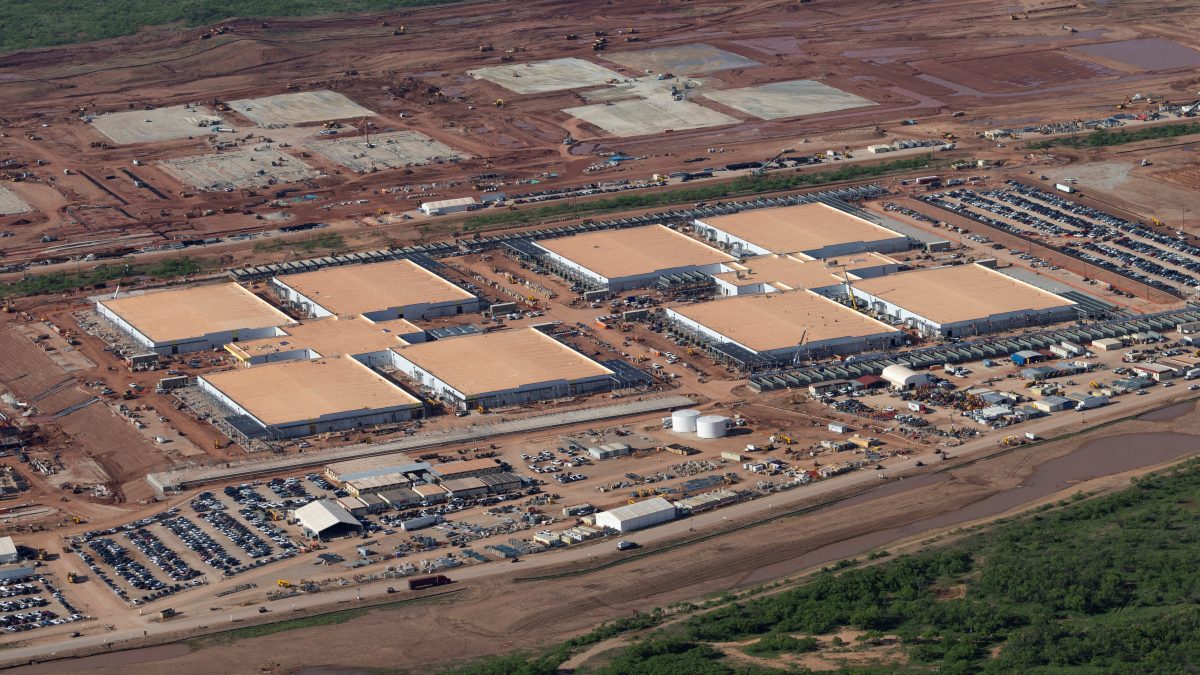In January this year, the Stargate Project emerged with a sweeping promise: a $500 billion investment in AI infrastructure intended to cement US dominance in artificial intelligence, create hundreds of thousands of jobs and serve national security.
Spearheaded by OpenAI, SoftBank, Oracle and MGX—launched with great fanfare at the White House alongside President Donald Trump—the initiative was positioned as the most ambitious tech infrastructure plan in American history.
But six months on, the ambitious programme has yet to secure a single major data centre deal, according to The Wall Street Journal.
Early pledges, delayed action
At its inception, Stargate projected a rapid deployment of $100 billion and plans for 10 gigawatts of computing capacity spread across multiple massive data centres. However, insiders now say those goals have been drastically scaled back, The Wall Street Journal report said.
The new, much-reduced target involves the construction of a single, smaller facility—possibly in Ohio by the end of 2025. The delay stems from disagreements between the project’s lead partners, OpenAI and SoftBank, especially over where to locate the data centres and how to implement them.
Conflicting visions between partners
While both companies publicly maintain a united front, tensions reportedly simmer behind the scenes. Sam Altman of OpenAI and Masayoshi Son of SoftBank have diverged on key elements, including site selection and whether to rely on SoftBank-backed SB Energy properties.
OpenAI has pressed ahead on other infrastructure deals independently, most notably a separate arrangement with Oracle that bypasses SoftBank altogether. That deal alone involves building 4.5 gigawatts of data centre capacity, triple what Stargate was expected to deliver in the near term.
OpenAI finds alternative routes
Even as Stargate stalls, OpenAI has not slowed its pursuit of infrastructure expansion. Its partnership with Oracle includes massive power and compute capabilities spread across US locations, reportedly consuming as much energy as two Hoover Dams.
Coupled with earlier agreements like one with CoreWeave, OpenAI has already nearly matched the 5 gigawatts of capacity initially tied to Stargate’s $100 billion rollout. This suggests OpenAI is building its AI infrastructure with or without Stargate’s formal structure in place.
SoftBank’s high stakes gamble
Masayoshi Son remains committed to the vision, despite Stargate’s stumbling start. According to The Wall Street Journal, the Japanese billionaire say he is still bullish on OpenAI and even interested in increasing his investment.
Earlier this year, SoftBank committed a record-setting $30 billion to OpenAI—a move that pushed the company to sell assets and take on additional debt.
For Son, the Stargate project is not just a financial venture but a strategic attempt to finally cement SoftBank’s relevance in the AI revolution after missing early bets on major players like OpenAI and facing high profile failures in other sectors.
Impact Shorts
More ShortsElon Musk recently weighed in on the project’s faltering momentum. Responding to social media speculation about the delays, Musk remarked, “They simply don’t,” referencing earlier claims that SoftBank lacks the necessary funds.
Musk had previously suggested that SoftBank had secured less than $10 billion of the $500 billion required—a claim that reignited debate over the project’s financial grounding.
Public posturing versus private realities
In a recent SoftBank event, both Son and Altman made a public appearance via video, reaffirming their commitment to building 10 gigawatts of AI data centres. Altman described it as a “wonderful partnership,” and both parties issued a joint statement promising that they were “moving at hyperscale and speed”.
However, such optimistic messaging contrasts with the reality that, as of mid-2025, Stargate has not finalised even one major data centre agreement.
From acquiring land and energy to sourcing high-performance chips and managing financing, the process is slow and capital-intensive. Stargate’s own teams are said to be evaluating new, lower-cost designs for their proposed Ohio facility, but no formal construction has begun.
Oracle’s CEO Safra Catz confirmed on a recent investor call that Stargate had not yet been formally established as a legal entity, casting further doubt on its operational status.
Political spotlight
President Trump’s administration had touted Stargate as a symbol of America’s resurgence in technological leadership. With its White House launch, the project was strategically positioned to highlight Trump’s commitment to economic growth, innovation and job creation.
But the delays in execution are now raising questions about the project’s feasibility. Despite repeated assurances of urgency, Stargate’s progress does not appear to align with the administration’s timelines or rhetoric.
The Trump administration has even declared a national energy emergency to remove regulatory barriers. Yet Stargate, meant to be the flagship of this national push, has not delivered as expected.
A vanishing dream?
While Stargate’s immediate ambitions have shrunk dramatically, those involved insist the long-term vision remains intact. OpenAI, for its part, continues to emphasise the need for large-scale investment in compute infrastructure, describing it as essential for advancing toward artificial general intelligence (AGI).
Some elements of the original vision have taken shape albeit outside Stargate’s framework. In Abilene, Texas, where Oracle and OpenAI have already begun development, Nvidia AI hardware has been delivered and early-stage training is underway.
The site has generated thousands of construction and support jobs, offering a glimpse of what Stargate aspired to achieve. Yet these successes are largely independent of SoftBank exposing the fragmentation of what was once pitched as a unified mega-project.
Stargate was conceived as a moonshot, combining public support, private capital and cutting-edge technology to catapult the US into AI supremacy. Six months later, the reality appears far messier.
Whether Stargate eventually fulfills its bold promise remains unclear. The venture, for now, stands as a symbol of the tension between a much-touted ambition and the slow, tangled grind of implementation.
)